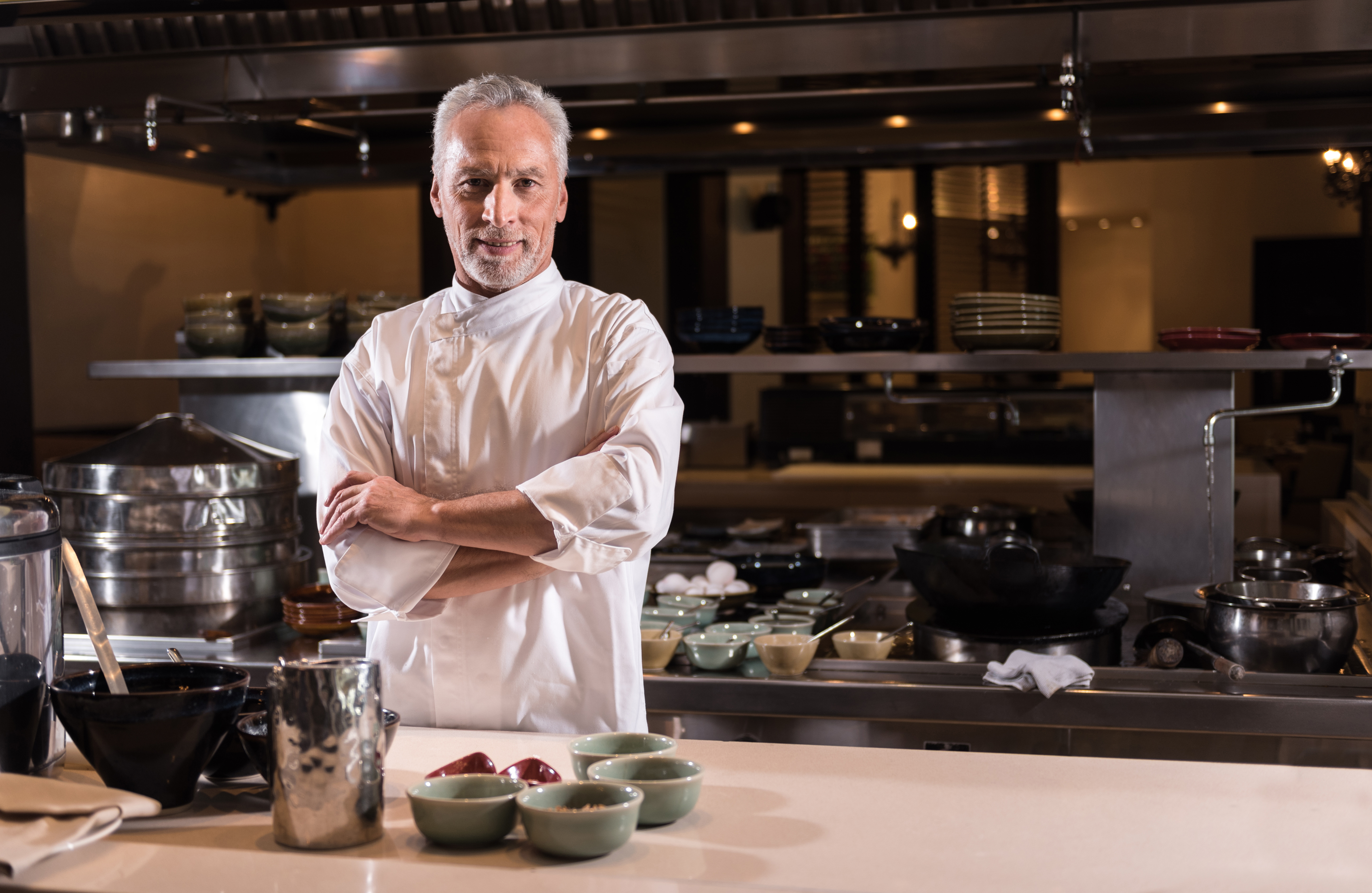Head Chef Jobs
Looking for Head Chef jobs? This article from the team at Pineapple Recruitment covers top jobs, daily responsibilities, salary ranges and career paths. What does it take to be a Head Chef in a city restaurant or a lovely local eatery?
- Head Chef roles are not just jobs; they are highly sought-after positions in high demand across the UK, requiring creativity and leadership.
- Successful Head Chefs require a combination of culinary skills, leadership, and effective communication to thrive in a fast-paced environment.
- Pineapple Recruitment specialise in matching talented chefs with suitable jobs, providing valuable support and resources to help your career.
Find Your Perfect Head Chef Job Near You in the UK
 In the UK, the demand for Head Chefs spans a wide range of establishments, from bustling pubs and luxurious hotels to the nurturing environment of care homes. Each setting offers unique opportunities to showcase your culinary skills and leadership. For instance, at Mitchells & Butlers, Head Chefs can take on roles that blend culinary creativity with team leadership, offering a perfect mix of innovation and management.
In the UK, the demand for Head Chefs spans a wide range of establishments, from bustling pubs and luxurious hotels to the nurturing environment of care homes. Each setting offers unique opportunities to showcase your culinary skills and leadership. For instance, at Mitchells & Butlers, Head Chefs can take on roles that blend culinary creativity with team leadership, offering a perfect mix of innovation and management.
Geographically, Head Chef roles are available across the UK, from the busy city centres, such as London, to the lovely towns of Dorking, Poole, and Edinburgh. Each location has its culinary landscape, flavour, provenance, and seasonality, allowing head chefs to indulge in fresh, local ingredients and innovative dishes.
So, whether you like the fast-paced environment of a London kitchen or the charm of a regional gem, there’s a Head Chef job for you.
Daily Tasks of a Head Chef
Being a Head Chef means more than just cooking; it involves leadership and management skills. These include:
- Leading and managing the kitchen to maintain high food quality.
- Directing the kitchen team.
- Managing hiring, training and scheduling to keep the kitchen running smoothly.
- Creating a positive work environment that motivates the team to handle the pressures of service.
- High standards of service for the customer, focusing on their satisfaction and overall dining experience and managing the Kitchen Team and Quality. A Head Chef needs to be good at communication, so all staff know their roles and responsibilities. This clarity helps the kitchen run smoothly, especially during the chaos of service when the team is navigating the storm of orders and activity. Head chefs are also responsible for menu planning, aligning it with the restaurant’s concept and considering seasonality and dietary needs.
Menu Planning and Food Preparation. The creative aspect of being a Head Chef involves food preparation and cooking, ensuring that every dish meets high standards of both taste and presentation. This hands-on involvement is where the chef’s passion and skill truly shine, transforming ingredients into culinary masterpieces and creating unforgettable experiences for guests.
Overseeing inventory management is another key task for the kitchen manager, making sure the kitchen is always stocked with the right supplies. Head Chefs must also ensure strict adherence to food safety and sanitation protocols, which are essential for maintaining a safe and efficient kitchen environment.
Quality Control and Communication: Quality control is an ongoing process; the Head Chef regularly tastes and inspects dishes to ensure consistency and excellence. Communication is key to maintaining these standards, so every member of the kitchen team is aligned with the chef’s vision and expectations.
Head Chef Salaries
 One of the most appealing aspects of being a Head Chef is the competitive salary. In the UK, Head Chefs can earn between £35,000 and £45,000 per annum, depending on the establishment and location. However, in London, they can earn between £35,000 and over £60,000 per annum, due to the high cost of living and the prestige associated with the restaurants.
One of the most appealing aspects of being a Head Chef is the competitive salary. In the UK, Head Chefs can earn between £35,000 and £45,000 per annum, depending on the establishment and location. However, in London, they can earn between £35,000 and over £60,000 per annum, due to the high cost of living and the prestige associated with the restaurants.
Outside of London, salaries for Head Chefs are typically lower, ranging from £28,000 to £40,000 per annum. Experience plays a significant role in determining salary; highly experienced chefs, especially those with over 10 years of experience in the industry, can earn over £50,000 per annum.
Head Chefs work around 40 hours a week, which may include evenings and weekends, due to the demands of the hospitality industry.
Head Chefs in fine dining restaurants or those specialising in high-end cuisine earn higher wages than those in casual dining or fast food establishments. Ultimately, the type of cuisine and the prestige of the establishment have a significant impact on salary, so it’s an excellent career for those who are passionate about culinary excellence and leadership.## Essential Qualifications for Aspiring Head Chefs
 Aspiring Head Chefs, listen up! To stand out in this competitive industry, you need the right qualifications. Typically, this means getting diplomas or degrees from renowned culinary schools, such as NVQs/SVQs in Professional Cookery and advanced diplomas in culinary arts. These formal qualifications provide a solid foundation in cooking techniques, kitchen management and food safety.
Aspiring Head Chefs, listen up! To stand out in this competitive industry, you need the right qualifications. Typically, this means getting diplomas or degrees from renowned culinary schools, such as NVQs/SVQs in Professional Cookery and advanced diplomas in culinary arts. These formal qualifications provide a solid foundation in cooking techniques, kitchen management and food safety.
Hands-on experience is just as necessary. Apprenticeships provide excellent opportunities for aspiring chefs to learn the trade from the ground up. These can range from Level 2 for Production Chefs to Level 4 for Senior Culinary Chefs, providing a structured path to mastery.
Head Chefs also need to have a comprehensive understanding of kitchen operations and safety standards, with food safety certification essential to comply with health regulations.
Career Progression in the Industry
The industry offers a dynamic career path with numerous opportunities for growth and advancement. Typically, individuals start as a Commis Chef, focusing on basic food prep tasks. As they gain experience, they advance to roles such as Chef de Partie, where they assume more specialised culinary responsibilities.
From Commis Chef to Sous Chef
Moving up to a Sous Chef role means assuming supervisory duties and managing the kitchen in the Head Chef’s absence. This is a critical role in kitchen operations, a stepping stone to becoming a head chef. Each step up the culinary ladder allows chefs to develop their skills and assume more responsibility.
Head Chef and Beyond
Once an individual has honed their skills as a Sous Chef, the following steps are:
- Become a Head Chef, lead the kitchen team and oversee all culinary activities.
- Move into executive chef roles.
- Move into restaurant and hospitality management, often overseeing multiple sites.
As a Head Chef, there are big opportunities to grow professionally and help your team succeed by nurturing talent, leading growth initiatives and creating a motivated kitchen environment.
Restaurant Management
With sufficient experience, head chefs may want to transition into the business side of the industry. This could involve managing multiple restaurants or sites, which provides more responsibility and opportunities for growth.
Entrepreneurship in the Culinary Field
For those with an entrepreneurial spirit, starting their own catering business or opening a restaurant can be an excellent way to utilise their culinary skills. Discipline, dedication and a willingness to try different cuisines and roles are key to this progression.
Benefits of Being a Head Chef
Being a Head Chef comes with numerous benefits that make it a highly desirable career. One of the most significant advantages is the creative freedom it offers. Head chefs can experiment with recipes, develop new dishes and create menus that reflect their culinary vision.
Many Head Chef roles come with nice perks, such as bonuses, live-in accommodation, and discounted or free meals, which can significantly reduce living expenses. Beyond these tangible benefits, the role also offers numerous opportunities for personal and professional growth, enabling individuals to refine their skills and gain experience in the culinary arts.
The stable work routine and daily tasks mean a consistent and rewarding work environment.
Key Skills for Success as a Head Chef
Success as a Head Chef is about a combination of essential skills that go beyond culinary talent. Leadership is key; head chefs need to guide their kitchen team through the chaos of a busy service. Strong communication skills are also vital for coordinating the team’s efforts and maintaining smooth kitchen operations.
Creativity is essential for designing menus and innovating new dishes. An in-depth understanding of ingredients and flavours helps create balanced and complex meals that inspire love. Attention to detail ensures that the food meets the highest standards of quality and presentation.
Finally, the ability to work under pressure and maintain food preparation skills is essential for delivering many great dining experiences at high speed, ready for any challenge that comes along.
Finding the Right Head Chef Job
Finding the right Head Chef job requires a strategic approach. Here are some steps to help you stay up to date with new opportunities:
- Set up job alerts on various job sites.
- Create an account on these job sites.
- Customise your job alerts to receive notifications for roles that match your skills and preferences.
- Always check the posting date or application deadline on job listings to make sure you don’t miss out on recent opportunities.
Networking is another powerful tool in your job search armoury. To increase your visibility to recruiters, consider:
- Engage with industry-related content.
- Connect with professionals on LinkedIn.
- Customise your LinkedIn profile with relevant keywords to be found by potential employers. Additionally, using Boolean search on job sites can help refine your job search results, allowing those looking for a similar fit to see it more easily.
Pineapple Recruitment: Your Culinary Career Partner
 Pineapple Recruitment fosters lasting connections in the catering and hospitality industry by pairing candidates with suitable roles. Specialising in full-time and part-time chef positions, the agency enhances kitchen operations for various hospitality businesses by pairing them with qualified chefs.
Pineapple Recruitment fosters lasting connections in the catering and hospitality industry by pairing candidates with suitable roles. Specialising in full-time and part-time chef positions, the agency enhances kitchen operations for various hospitality businesses by pairing them with qualified chefs.
Based in Worcester, Pineapple Recruitment tailor their recruitment approach to each client’s needs and culture. The agency collaborates with some of the UK’s fastest-growing companies in the hospitality sector, enabling both candidates and employers to find the perfect match.
Pineapple Recruitment specialises in recruitment across catering, hospitality, leisure, hotels, and restaurants, making them a trusted partner in culinary careers.
How Pineapple Recruitment Supports Candidates
 Pineapple Recruitment goes above and beyond to support candidates in their job search. The agency provides personalised career guidance to help candidates align their aspirations with suitable job opportunities. This includes a free initial consultation to discuss career options and ensure candidates are on the right path.
Pineapple Recruitment goes above and beyond to support candidates in their job search. The agency provides personalised career guidance to help candidates align their aspirations with suitable job opportunities. This includes a free initial consultation to discuss career options and ensure candidates are on the right path.
Also, Pineapple Recruitment will help with CV preparation to ensure candidates present their qualifications effectively to potential employers. By highlighting the alignment of candidates’ skills with the needs of employers, Pineapple Recruitment ensures a good job fit and increased job placements.
Success Stories: Placing Skilled Chefs
Pineapple Recruitment has a history of successful placements that have made a significant impact on chefs’ careers. Candidates have shared their positive experiences of how the agency helped them get into significant culinary roles. This has led to increased job satisfaction and career progression for many chefs.
The agency’s tailored approach to recruitment has resulted in many success stories, chefs have achieved their career goals and are contributing to the success of the businesses they work for. The feedback from placed chefs demonstrates the agency’s commitment to creating long-term connections in the culinary industry.
Pursuing a career as a Head Chef in the UK offers numerous opportunities, including roles across the country, competitive salaries, and excellent benefits. Aspiring Head Chefs need to get the right qualifications, hands-on experience, and essential skills to succeed in this industry. With agencies like Pineapple Recruitment, the process of finding a head chef job becomes a smooth one, making it a perfect match for both candidates and employers. Becoming a head chef is a challenging yet rewarding experience for those who love culinary excellence and possess leadership skills.
FAQs
What are the salary ranges for Head Chefs in the UK?
Head Chefs in the UK earn between £35,000 and £45,000 per year, with London roles often exceeding £ 60,000, depending on the business. Get to that top end by developing your skills and experience!
What qualifications are required to be a Head Chef?
To become a Head Chef, you’ll need a culinary diploma or degree, as well as practical experience gained through apprenticeships. Focus on getting those qualifications and hands-on experience to take your culinary career to the next level!
How do I find a Head Chef job?
To secure the right Head Chef job, set up job alerts, network on LinkedIn, and use Boolean search on job sites. Do this, and your dream job will be closer!
What support does Pineapple Recruitment offer to candidates?
Pineapple Recruitment offers personal career guidance and help with CV preparation so you can present your qualifications effectively—take advantage of their free initial consultation!
What are the benefits of being a Head Chef?
Being a Boolean search means having creative freedom, receiving bonuses and discounted meals, and opportunities for both personal and professional growth. Get to lead and inspire in the kitchen!





